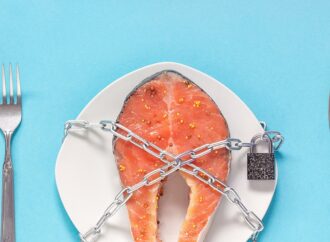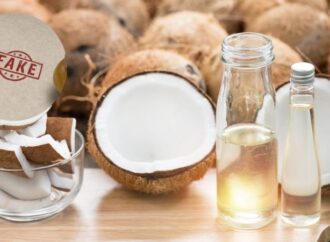Walk into almost any fast food joint today, and you’ll likely spot a busy shawarma counter. Wrapped in soft pita bread and filled with spiced meat and crunchy veggies, shawarma has become a go-to snack for many. But there’s one creamy ingredient that could be putting your health at risk — the mayonnaise. That dollop of white sauce may seem harmless, even tasty, but it can quickly turn into a health hazard if not handled correctly. Some states in India are now cracking down on a specific kind of mayonnaise for exactly this reason.
What Is Mayonnaise, Exactly?
Mayonnaise is a thick, creamy sauce made by blending egg yolks, vegetable oil, and an acid like vinegar or lemon juice. The egg yolks work as an emulsifier, helping oil and water combine into a smooth, stable mixture. Though Europe popularised it, mayonnaise has become a global kitchen staple. In India, people use it widely in sandwiches, burgers, momos, and, of course, shawarma. But while it adds flavour and texture, its key ingredient—raw egg yolk—raises serious food safety concerns.
Why Mayonnaise Is a Risky Ingredient

Many restaurants prepare mayonnaise fresh using raw eggs, and that’s where the danger begins. Raw eggs can carry Salmonella, a harmful bacterium that causes food poisoning. In India’s warm and humid climate, the risk rises sharply if mayonnaise isn’t stored below 4°C or handled hygienically. What makes it worse is that contaminated mayo doesn’t always look, smell, or taste spoiled. People may eat it without realising the danger—until symptoms like stomach pain, nausea, vomiting, or diarrhoea set in. For vulnerable groups like children, the elderly, or those with weak immunity, this can lead to severe illness and even hospitalisation.
When Mayo Goes Wrong
A recent case in Kerala highlights this issue. Around 30 people fell ill after eating shawarma, and officials traced the source to improperly stored mayonnaise, likely made from unpasteurised eggs. Unfortunately, this isn’t an isolated event. Across India, similar food poisoning outbreaks linked to mayonnaise-based dishes continue to emerge. The main culprits are bacteria like Salmonella—a leading global cause of foodborne illness—and certain harmful strains of E. coli, which can cause serious gastrointestinal problems. A 2020 EU report recorded over 91,000 confirmed Salmonella cases, with eggs and egg products among the top sources, underscoring just how serious this risk can be.
How It Turns Dangerous
Here’s how mayonnaise becomes a health hazard:
-
Use of Raw Eggs: Many eateries choose regular eggs over pasteurised ones. Pasteurisation uses heat to kill harmful bacteria, making the eggs safer for use in foods like mayonnaise.
Improper Storage: Staff often leave mayonnaise out in the open instead of storing it below 4°C (39°F), especially in street food stalls, allowing bacteria to multiply quickly.
Cross-Contamination: Workers sometimes use dirty spoons, containers, or countertops, which introduce bacteria into freshly prepared mayo.
No Expiry Labelling: Many food handlers fail to label mayonnaise with its preparation and expiry times, leading them to use it well beyond its safe limit.
What the Guidelines Say
The Food Safety and Standards Authority of India (FSSAI) has set guidelines to reduce risks:
-
Use only pasteurised eggs for mayonnaise.
-
Store mayo below 4°C.
-
Discard if left out for more than 2 hours; refrigerate and use within 4 hours.
-
Clean utensils and containers thoroughly.
-
Label food with the preparation date and time.
Unfortunately, many small eateries ignore these standards, often to cut costs.
State Governments Step In
Taking the issue seriously, Tamil Nadu imposed a one-year ban on April 8, 2025, on the production, storage, and sale of mayonnaise made with raw eggs. The state classified it as a “high-risk food,” particularly in India’s hot climate, where the risk of bacterial contamination is significantly higher. Telangana and Kerala had already introduced similar bans in 2024 and 2023, respectively. These measures reflect a growing shift toward safer food practices across the country. While the move may cause minor disruptions in the fast-food and street food sectors, the potential health benefits far outweigh the inconvenience.
What Restaurants Can Do
Food businesses can protect their customers—and their reputation—by following a few key steps:
-
Use commercial, egg-free, or pasteurised mayonnaise.
-
Store mayo correctly and avoid using leftovers that have been sitting out.
-
Train staff in food safety and hygiene.
-
Label everything clearly with prep times.
-
Use clean water, and always handle food with gloves.
What You Can Do as a Customer

You don’t have to avoid your favourite snacks just because they contain mayonnaise — but you should stay alert:
-
Ask how the mayonnaise is prepared. If it’s made in-house, check whether pasteurised eggs are used.
-
Avoid outlets that keep mayo or sauces uncovered, especially in hot weather.
-
Observe hygiene practices — clean gloves, utensils, and surfaces matter.
-
Trust your senses. If something smells or tastes off, don’t eat it.
-
If you feel sick after eating from a food joint, report it to local food safety authorities — it can prevent others from falling ill.
Final Bite
Mayonnaise may look like an innocent, everyday condiment, but if made or stored carelessly, it can turn into a serious health threat. Shawarma may be a favourite street snack, but the creamy mayo tucked inside deserves extra scrutiny. With rising food safety concerns, bans like the one in Tamil Nadu could pave the way for safer food practices nationwide. As consumers and food providers, it’s time we stop taking mayonnaise for granted — and start taking food safety seriously.
 Food Manifest
Food Manifest 


















